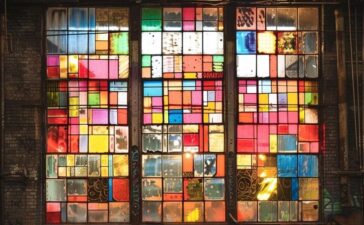Nothing is more terrifying or frustrating than when the power goes off in the middle of an important job. In fact, a power outage can be a nightmare for anyone. However, for those who work in industries that depend on a huge power supply, it can cost a fortune.
For situations like this, when there is a large-scale power failure because of a major storm, freezing weather, a hurricane or any other natural disaster, you should be well prepared.
Power outages have also become more frequent due to unreliable power grids. Whether your local area is prepared for such an event or not, you shouldn’t waste any time. If you don’t want to be left sweaty and irritated in the dark for an indefinite period, it’s time to invest in an emergency power generator.
Determine Your Needs
Choosing the right emergency power generator can be a quest of its own. First, you need to determine the purpose of the generator before you can go about deciding which one is best for your needs.
1. For Residential
When you’re choosing an emergency power generator for a house, you need to consider a couple of things. Firstly, you have to determine what and how many appliances and electronics you need to power.
If you want the whole house to be able to operate during a blackout, you’ll need a permanent standby generator that can provide an adequate power supply. On the other hand, if you can survive with just the necessities, you can probably manage with a portable one. The recommended units for your home depend on the size of your home and which appliances and machines are important to you in a blackout.
These vital appliances could be the freezer, microwave, sump pump, air conditioner, major light points and maybe one or two outlets to charge your phone and laptop. A budget-friendly trip will be to go for the portable emergency power generator. For homeowners, the single-phase diesel power generator is a viable choice.
2. For Industries
When it comes to commercial facility owners, a total loss of power can be horrifying. Even the thought of such an occurrence can give you panic attacks. It’s better to be prepared than to find yourself in the chaos of confused employees who are at a loss about what to do next.
As industries and commercial facilities need a great deal of power to function, you should look for an emergency power generator that will be able to provide an adequate amount of power to get things running again. For this purpose, a diesel generator 3 phase power will be a great choice.
3. For Camping
Some people prefer to enjoy the complete experience of camping out in nature. But when it’s dark out there with no sign of life, it becomes a matter of security to have at least one source of light and a working cell phone.
Besides, running out of charge in your RV in a deserted place can be inconvenient. For times like this, you would be grateful for a portable generator.
While this can be a great option, there is another kind of generator that has been proved to be a more popular choice. This modern “inverter generator” is lighter in weight and provides a less noisy and more fuel-efficient service.
Buying Guide
Once you’ve established the reason for an emergency power generator, it’ll become easier to choose one. Some of the aspects you need to keep in mind while looking for the perfect emergency power generator for your backup include:
1. Budget
Before you hit the market, make sure you have a clear idea of how much you want to spend on an emergency power generator. For portable generators, the price can range from $150 to $5,000, depending on the specifications.
On the other hand, standby generators start from $2,000 for 7,500W to $30,000 for up to 150KW if you’re willing to splurge. The inverter generators can cost you from $300 to $2,000.
2. Type
There are two different types of generators available – portable and standby, and each comes with distinct features.
Portable Generator
A portable generator is the best choice for people looking for an affordable yet efficient emergency power generator. These generators are small and convenient if you need to power a few essential appliances during a blackout.
They even come in a compact size, making it easier to move from one place to another. The portable generators are easy to maintain as well. You need to refill the generator with diesel or gas every few hours.
Keeping in mind that the gas stations might as well be out of power during a blackout, you should be prepared with enough fuel beforehand. The portable generator needs to be started manually by plugging in the units individually with the help of extension cords.
Standby Generator
If you want a little extra security and a more permanent solution, you should opt for a standby generator. The great thing about these generators is that they start automatically and you’re able to power up the whole house or facility within seconds.
As this type of generator connects to the existing fuel, it doesn’t require any refilling. Standby generators are permanently installed outside the house and run generally on propane or natural gas. They can provide a hefty amount of power that will support complex electronics such as security systems, heating systems, etc.
3. Fuel Source
While you’re deciding what type of generator will be suitable, you also need to consider the type of fuel. Emergency power generators mostly use natural gas or diesel as their fuel source.
Homeowners will be more interested in natural gas as it doesn’t require a huge amount. But for the industries and commercial facilities, diesel is a more appropriate option. Diesel can be stored in great quantities which is necessary when it needs plenty of power to re-energize the entire system.
Final Thoughts
Now that you know the tricks and tips of how to determine the best emergency power generator, don’t sit around waiting for the next power outage. Go and get yourself an emergency power generator that can spare you from long hours of misery.






